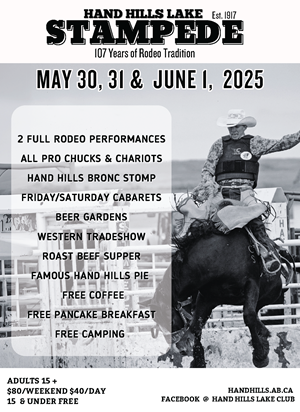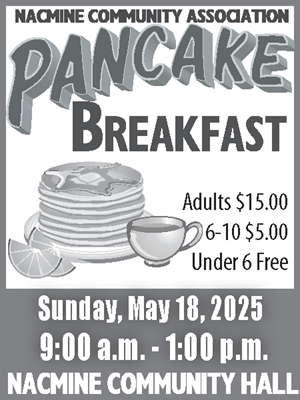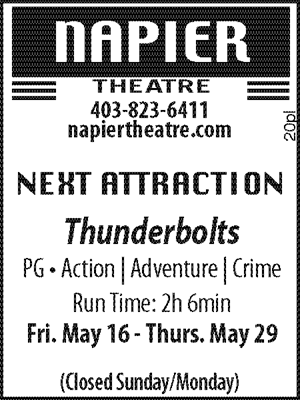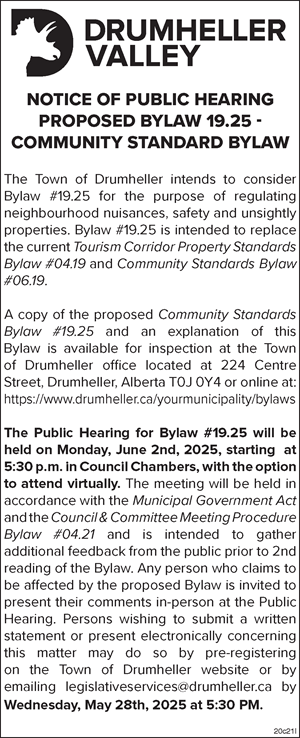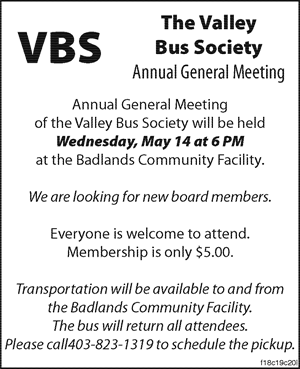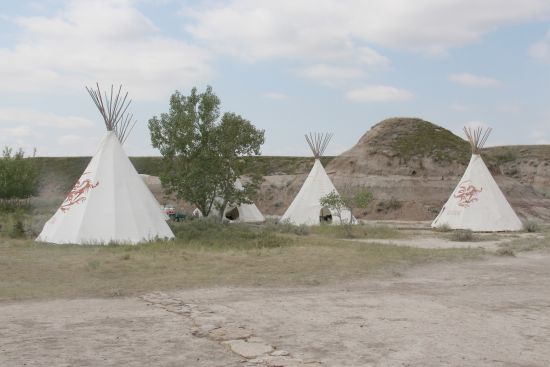
The opportunity to sleep where the dinosaurs use to roam is the “experience of a lifetime.”
Each summer children of all ages, come to Drumheller’s Royal Tyrrell Museum and experience the Encana Badlands Science Camp. The children get the opportunity to sleep in a real teepee, dig for dinosaur fossils and discover what went on millions of years ago in Drumheller.
The camp has different age groups. The junior science camp is for children from 9 to 12 and the senior science camp runs for teens from 13 to 16. A family science camp is also offered which is for children five years and up where parents or relatives stay with the children. Each of the camps is offered for a week at a time twice per summer.
Morgan Syvertsen, is the camp coordinator for the Science camp and said that 2015 numbers were “excellent”.
“We were over-sold on all of the camps (this year),” he explained.
“We are the only residential palaeontology camp in the world. Residential camp simply means that you stay on site. Kids come on Sunday evening and they spend the whole week staying in teepees and then they leave the following Saturday morning,” he said.
“It is a palaeontology camp, so we teach them to be palaeontolgists. We give them a basic lesson in geology, where to look for fossils and why, and then we take them out prospecting. Then depending on the age group, they sometimes get to do field trips where they collect microfossil matrix for the scientists. They then come back to the museum and wash it, sort it and put it under microscopes and then, depending on the age group, they will do data collection for scientists measuring teeth and flocking graphs and that sort of thing,” he said.
He mentioned that this year the older kids got to work in the lab preparing a femur that was dug up several years ago.
Syvertsen said the camp has an “awesome leadership team” which is made up of previous campers.
“All of our camp staff are returning campers. They have been junior campers, then senior campers, and then we put them through our leadership-training program and then they become our staff. We have known them literally for years, so we pick the best of the best,” he said.
The camp takes place in Midland Provincial Park and the group is the only ones who are allowed to camp at the park.
Syvertsen said this summer the camp participated in a conservation project to help out the provincial park.
“There is an invading species called Purple Loosestrife that has invaded the west end of the park. We got together with a bunch of park personnel and they supplied us with gloves and garbage bags and we went out there and pulled out dozen’s of bags full of this Purple Loosestrife before it overtook that corner of the park. It was a great thing for the kids. They loved to be able to contribute something like that,” he explained.
“We did that for them and we will probably do it again. The camp is in the park and the park is our home so we have to take care of it too,” he said.
“It really is the experience of a life time. We ask our guests to give us written feedback at the end of every camp, and they always just rave about how much fun they had and how they are going to recommend it to others,” he said.
“It turns out that a large amount of our guests are referrals. They have heard from somebody else how much fun this was so they had to check it out themselves,” he said remarking that the camp is a niche camp.
“It’s dinosaurs. We don’t do horseback riding, we don’t do canoeing, we don’t do archery, we just do dinosaurs, but we do it really well and the proof of that is that kids just keep coming back,” he said.
Syvertsen said last year the camp opened registration in the middle of December and by the middle of January the camp was 90 per cent sold out.
“We already have calls of people wanting to know if they can register for next year. We could probably double the size of the camp the bottleneck is the classroom size of the facility we have in the museum. If it was bigger, we could make a bigger camp,” he said.











